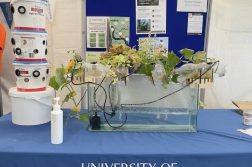Following widespread student complaints, the University have revised their ‘no detriment’ and classification policy released last week.
The amendment essentially means that whilst not all of students’ Semester 2 marks will feed into their academic year average, they will be used to inform their degree classification. They will also appear on students’ transcripts.
In an all-student email by Vice President (Education) Alex Neill, he said that:
In response to your feedback, we have revised the way in which we will implement the Policy that we sent you previously, and we have ensured that the work you have put into your Semester 2 coursework is now taken into account by Boards of Examiners when decisions about degree classifications are made.
For final-year undergradutes and and postgraduate taught students, the guidance is as follows:
First, they [The Board of Examainers] will determine an initial hypothesis for your degree classification based on the higher of your ‘No Detriment’ and ‘Enhanced Classification’ positions. This is as described in our previous message. Remember that your Enhanced Classification position will include your project/dissertation mark (or equivalent piece of independent study), if this was completed in Semester 2, and this can lift your overall average mark.
Once the initial hypothesis is formed, the Board of Examiners will then consider all the marks you have received in Semester 2, both before and after 22 March, including any marks from the 3 week assessment period in June. These will be considered alongside any recommendations from the Special Considerations Board, to test whether there is a case for upgrading your initial classification. There will be no downgrading of your initial classification as a result of considering your Semester 2 marks.
Meanwhile, for continuing students, the guidance is as follows:
If you are a continuing (i.e. non-finalist) student, your 2019-20 academic year average mark will be based on your Semester 1 marks or, if you are on the third year of an Integrated Master’s programme, on the highest mark obtained through the ‘No Detriment’ and ‘Enhanced Classification’ positions. This is as described to you in our previous message.
For first years, these marks will not be considered when your final degree classification is calculated.
If you are a second year, or a third year on an Integrated Master’s programme, then when you reach the end of your degree, the Board of Examiners will first determine an initial hypothesis for your degree classification. As described to you in our previous message, this will not include this year’s Semester 2 coursework marks. However, the Board of Examiners will then consider all the marks you have received in Semester 2 this year, both before and after 22 March, as well as any marks from the 3 week assessment period this June. These will be considered alongside any recommendations from the Special Considerations Board, to test whether there is a case for upgrading your initial classification. There will be no downgrading of your initial classification as a result of considering your Semester 2 marks from this year.
As a result, while these marks will not feed into your 2019-20 academic year average, they will be used to inform your degree classification.
This then means that whilst continuing students’ averages won’t change, their Semester 2 marks for this year (with the exception of Year 1 students) alongside all other degree marks will be taken into account when calculating their final degree classification.
In the email, Neill also apologises for ‘the fact that we have not been able to follow exactly what I said in my March message regarding Semester 2 coursework marks.’ He explains that:
The sole reason for this is that we are determined that our degree classification process protects the quality of your award and is fair to all our students across the University. We are in circumstances that we have never faced before, and when we started to work through the detail of how to implement our ‘no detriment’ policy, we simply couldn’t find a way to include Semester 2 coursework marks in academic year averages that was fair to all students, not least given that some will have been better able to engage with coursework than others. We modelled a wide range of possible ways to include these marks and concluded that none of them would allow us to be sure that we would be delivering an equitable outcome to all.
He also adds that he is ‘very aware that this has caused confusion and distress for many of our students. I accept that what we’ve said in the Policy doesn’t match with what I said in that earlier message, and I apologise. I realise that this may have led you to prioritise your efforts on coursework that now will not contribute to your average.’
Any students who feel the new policy will detriment them are encouraged to contact their Programme Leads regarding the special considerations process. Students can also discuss the issue with VP Education & Democracy for SUSU at vpeddem@soton.ac.uk, or get in touch with their academic rep.



